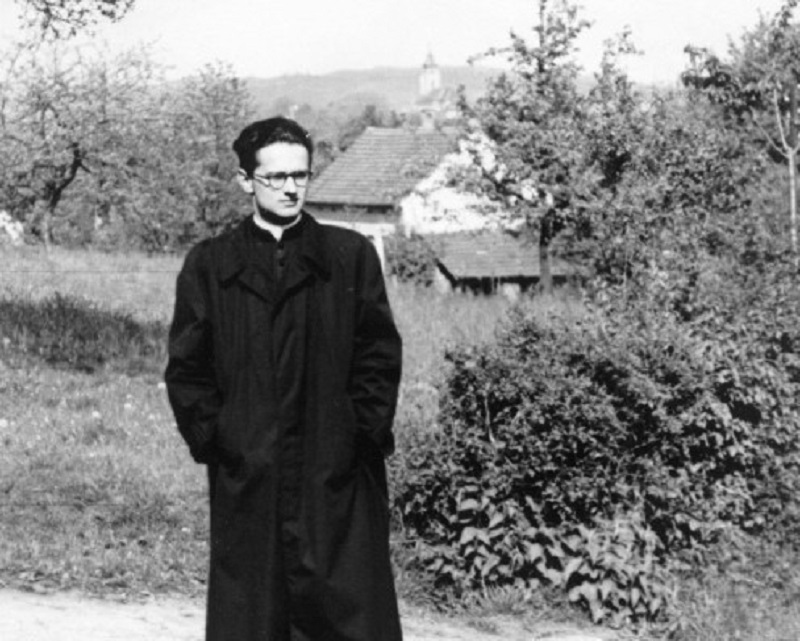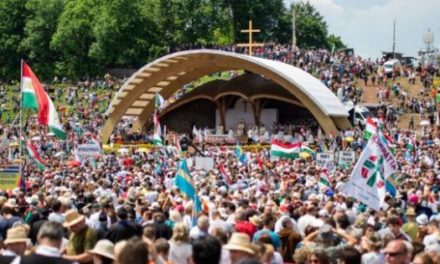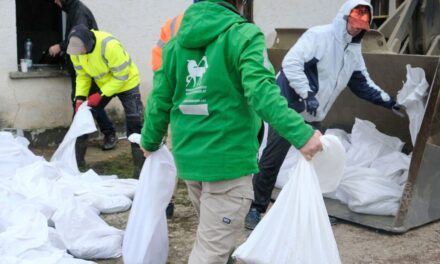We remember János Brenner, the martyr and pastor beatified on May 1, 2018, who was brutally murdered on the night of December 14-15, 1957.
One believer remembers the chaplain with a holy life: "He had a certain radiance that cannot be described in words. People loved him and tried to go where he was and listen to his words. There was something about him that attracted people. This was his main sin: he was loved by the young and loved by the old. He won many people to the faith, to the Church. He couldn't walk past a person without stopping and saying even a couple of words to him. That perpetual sweet smile on his face... He preached the word of God seriously, and testified to his faith at every moment. It was good to go to confession with him, because he was able to give advice."
All of this was frowned upon by the communist authorities, especially the fact that the chaplain also dealt with young people. His religious teachers and ministers told us what a serious job he did in their circle, not only giving them a religious lesson, but also playing and playing sports with them.
János Brenner was aware that practicing the priestly profession at this time was an even more trying task than when the monastic orders were broken up. The following thought from his spiritual diary also refers to this: "Lord, You know that I am not looking for happiness in this life, since I have placed everything in You. Lord, I know that you will not spare yours from suffering, because they benefit immeasurably from it."
One autumn evening, when he was on his way home from Farkasfa on a small motorbike, unknown people from the forest threw logs at him, but he deftly dodged them. When he got home, he said, "They were out of luck!" – and it turned out good for them.
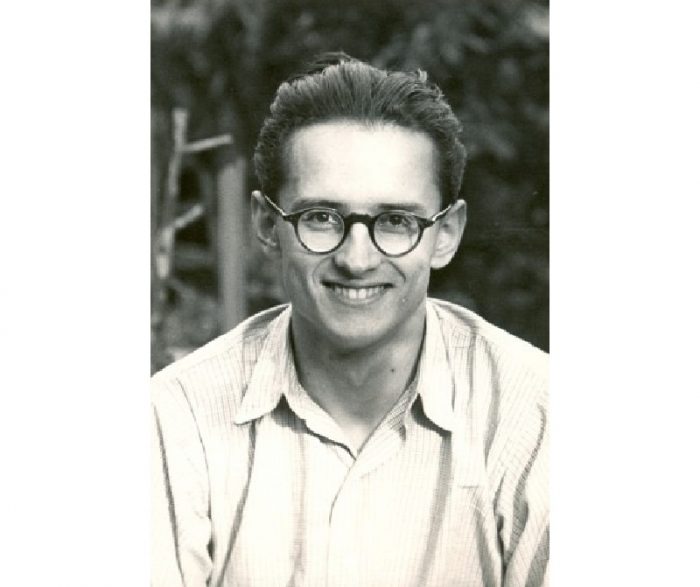
Blessed János Brenner/Source: Wikipedia
To this day, it is not possible to know exactly what happened on that night from December 14 to 15, 1957. We only have pieces of the mosaic at our disposal - the testimony of suspects and convicts, as well as the recollections of some eyewitnesses and the traces - on the basis of which the legal historian Frigyes Kahler reconstructed what happened.
According to eyewitnesses, there was a lot of coming and going in Szentgotthárd on December 14. A friendly evening was organized for the council members, and at the same time there was also a police ball. The Rábakethel gravedigger, while preparing the grave site for the burial of a young dead man the next day, saw a group in leather jackets around the church and the cemetery. And the parish priest went to Farkasfa, for Christmas confession, and spent the night with a family, because he said mass there the next morning.
Around midnight, a seventeen-year-old young man knocked on the parish hall with the request that his seriously ill uncle should be administered the sacraments. János Brenner went over to the church, hung his sick-hand bag, in which he carried the Blessed Sacrament, around his neck, and set off with his companion on the pitch-dark footpath leading through the hilltop towards Zsida. He was attacked several times on the way, but managed to escape. He was eventually caught near the suspected patient's house. This also proves that his killers knew: János Brenner takes his profession seriously. That's why they were waiting at the given address. And there, with the Blessed Sacrament around his neck, he was killed with thirty-two stabs. We also know from the autopsy report that multiple fractures of the hyoid bone and horns of the laryngeal cartilage were visible on the body. This cannot be caused by strangulation, the injury was caused by stepping on his neck and stomping on it. The reverend's white clerical collar had dirt marks on it, and the outline of a shoe sole was also visible on it. They not only wanted to kill him, but also to humiliate him.
The investigation was just a farce, everyone was a suspect, even the parish priest. Finally, one person was sentenced to death by the district and county courts, and then the Supreme Court acquitted him. Later, the boy who called János Brenner out of the parish was sentenced.
"To those who love God, everything works for their good" (Romans 8:28) - János Brenner's New Mass motto was also the guiding principle of his priestly life. With this spirit he lived and died for Christ and those entrusted to him. During his short but God-loving life, everything turned to his favor, even (or especially) death, since his blood was also the seed of Christianity.
"The good shepherd lays down his life for his sheep."
János Brenner did this: he gave his life for a non-existent patient, he gave his life for his vocation, for Christ. He was capable of any sacrifice. He was not afraid of threats or persecution.
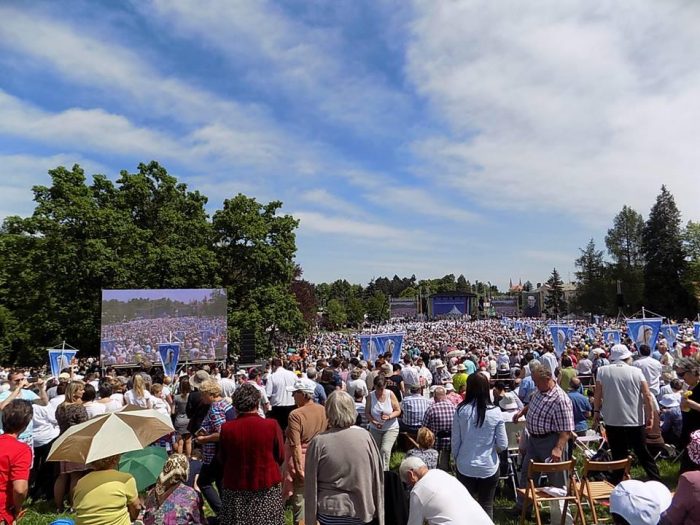
The beatification of János Brenner in 2018 on the Memorial Hill in Szombathely Photo: Wikipedia
Looking for the reason for the murder, several accusations were brought against the young pastor during the investigation (jealousy, human trafficking), which they can prove, but they did not find anyone who said anything bad about him. At the end of the investigation, someone remarked: "The canonization trial of János Brenner was held!" The life of a pure-hearted, honest priest faithfully serving God's cause became obvious to everyone. He wasn't a people smuggler, he was a fisher of people.
Since 2010, every Saturday night before the third Sunday of Advent, pilgrims on foot have set off in the evening hours, with candlesticks and torches, praying the Stations of the Cross from the church in Rábakethel, through forests and fields, following the path to which his killers invited the young priest, who believed in his defense, he died as a martyr of the sacrament of the altar, 12 days before his 26th birthday, under circumstances that are still unclear.
Source and full article: velvidek.ma
Featured Image: Wikipedia

